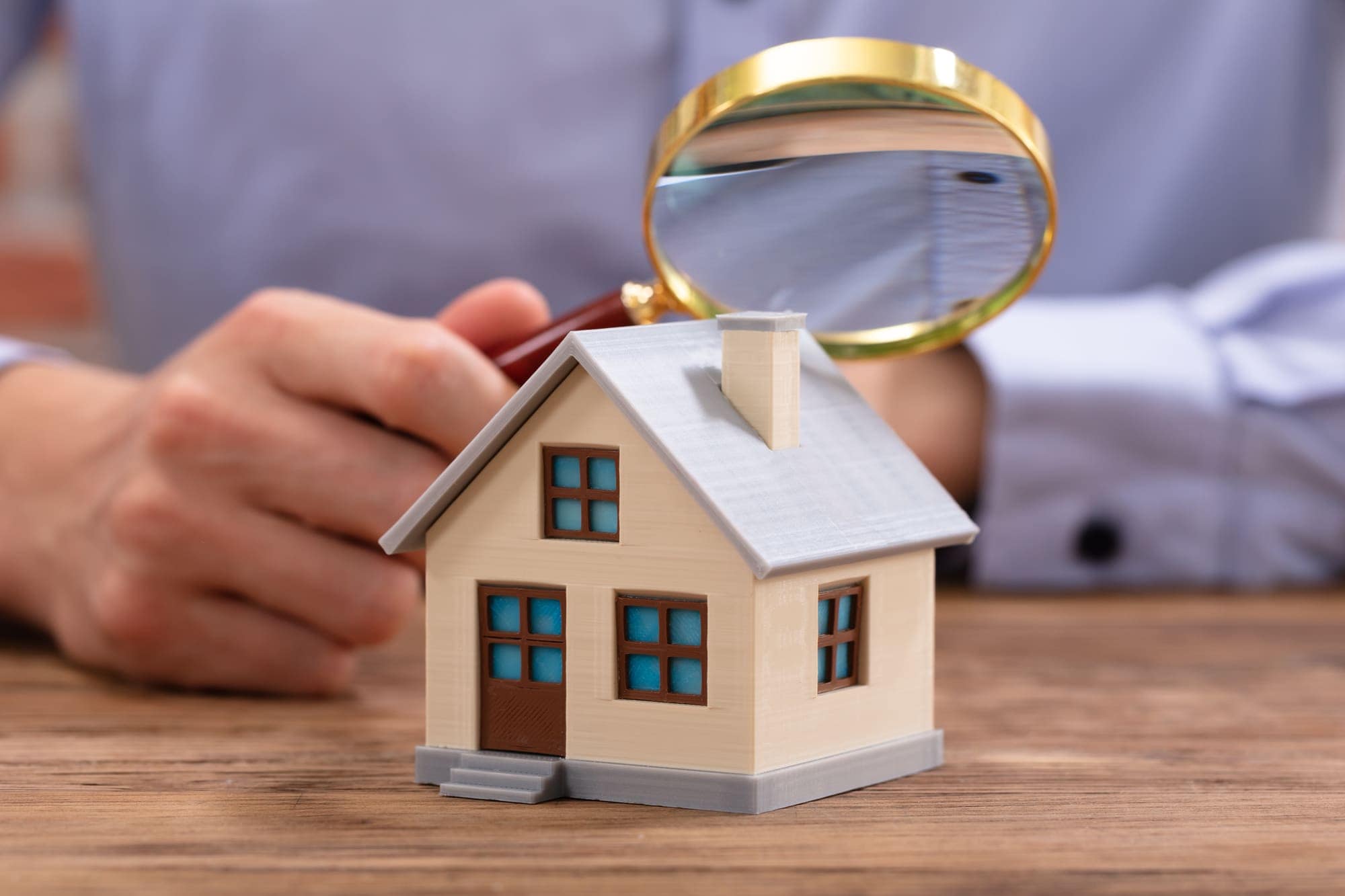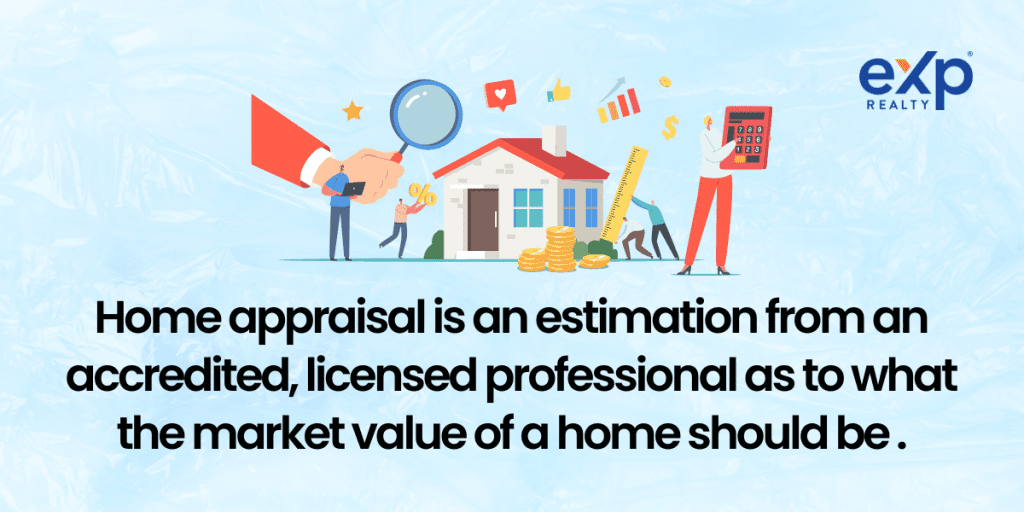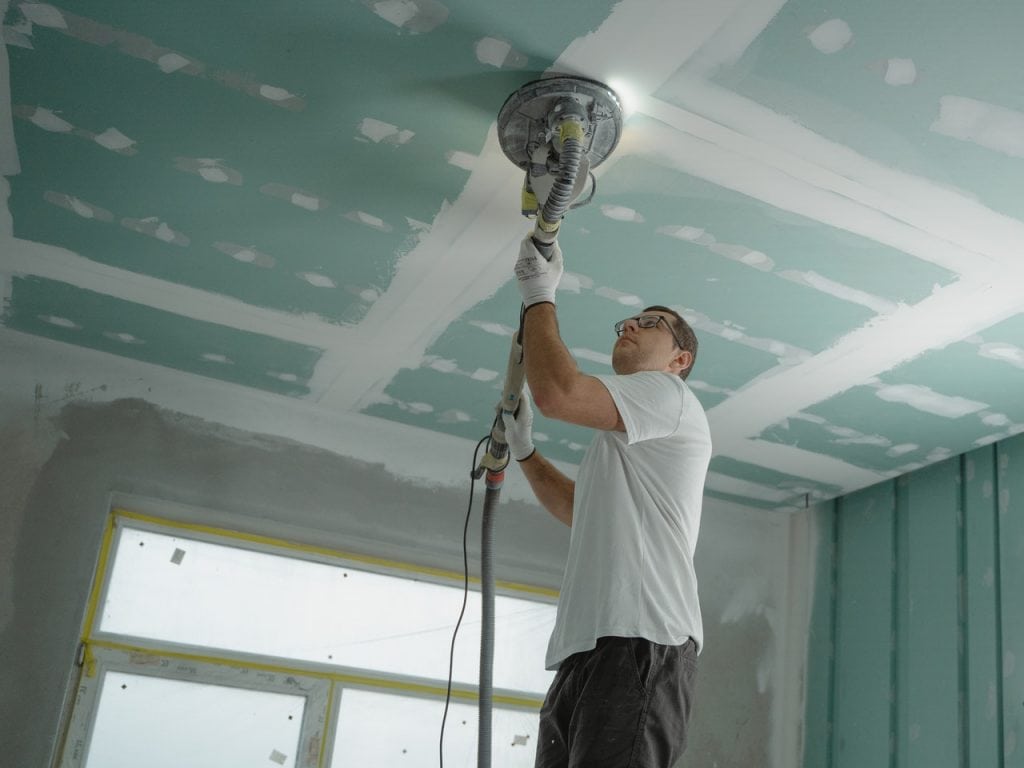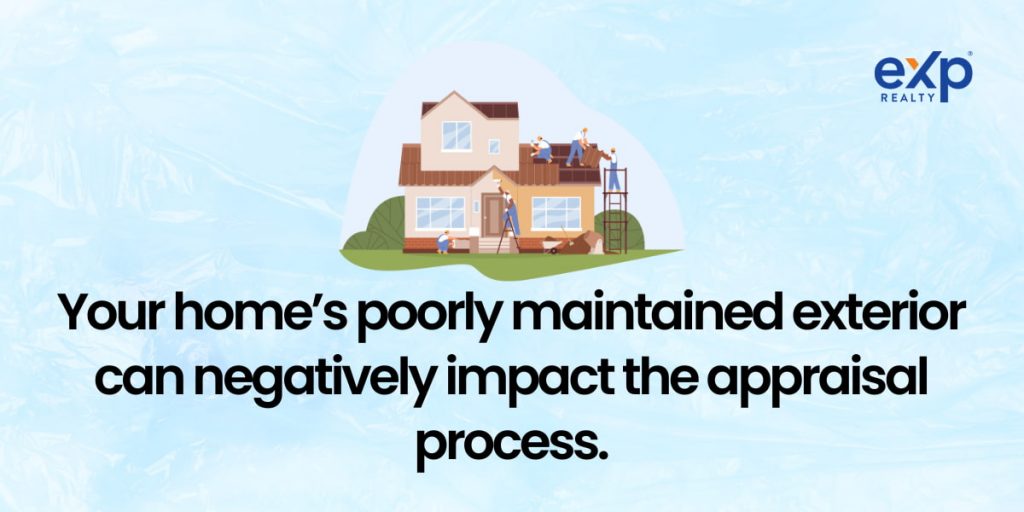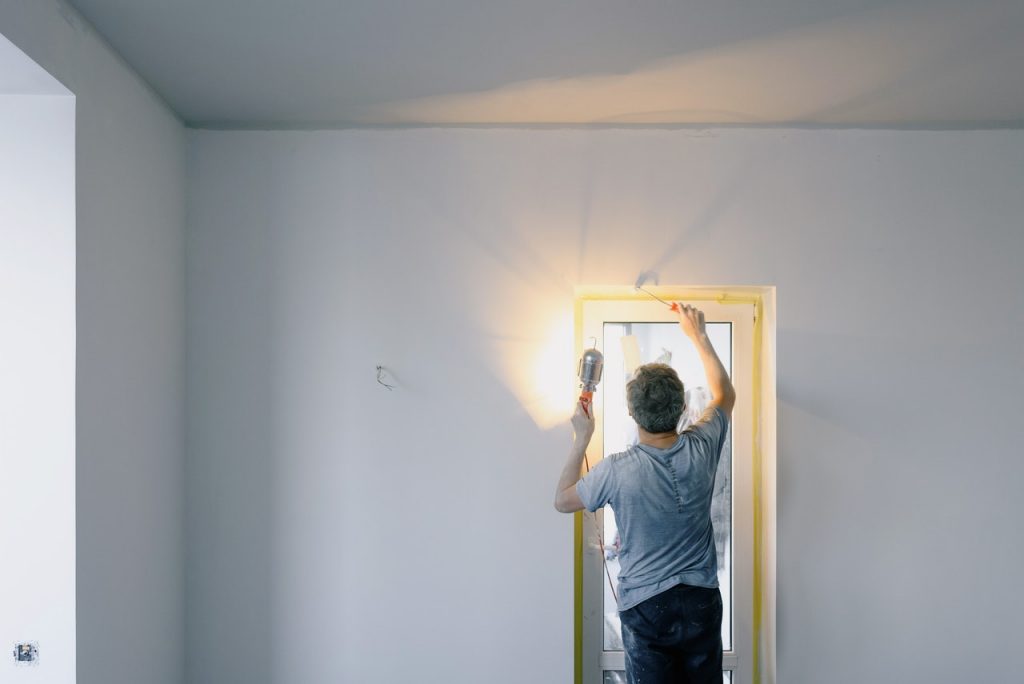Are you looking to buy a home foor sell a house? If so, you may need an appraisal report to define the property value. That way, you will have a more accurate asking price once you put your home on the real estate market.
Also, mortgage lenders often require home appraisals before purchase, so the lender usually hires a real estate appraiser to determine the value of the residence.
Are you worried your home will have a low property value? What to expect from a house appraisal? What hurts a home appraisal? Below, we will detail 21 factors that can hurt a home appraisal. We also offer solutions to increase the sales price of your house and an appraisal checklist to help raise that value as well.
Ready to find out what hurts a home appraisal? Let’s get started!
What Is a Home Appraisal?
The house appraisal is the unbiased opinion of a professional appraiser regarding a home’s sale price. A residential appraiser looks at the livable interior space of a home as well as the outdoor living space and unfinished spaces. Essentially, the square footage of a home and the number of bedrooms impact the overall value.
Furthermore, poorly designed spaces leave sellers with a lower purchase price since buyers aren’t as impressed with such homes, and a traditional appraisal value ends up smaller.
Along with the quality of the home and its features, the location of the property can also help or hurt a home appraisal. The appraiser includes the average cost of similar homes in the neighborhood when determining the house’s value. An appraisal fee usually costs between $300 and $450.
Home Appraisal vs. Home Inspection
An experienced appraiser looks at the entirety of a home, including usable living space and its outdoor landscaping, to shape a professional opinion on the house’s value. Similar homes in the same town or neighborhood are also used to make that decision and get an accurate home appraisal. Mortgage lenders often have an appraisal contingency as part of conventional loans.
A home inspection, however, determines what type of repairs a home needs. The buyers often request a home inspection before they complete the house purchase. The inspector details any broken appliances and the structural integrity of a house. Then, the potential buyer can request either a decrease in the final purchase price or a contractor to fix the issues.
Below, we detail 21 factors that may hurt a home appraisal and your property value.
1. Lack of Curb Appeal
A potential buyer often considers the curb appeal of a property. The curb appeal includes the lawn, front entrance, and other landscaping features. A home appraiser also considers the first impression of a property when determining the house value.
Essentially, a home that doesn’t have good curb appeal will not appraise well nor sell for a fair price. Yet, sellers can complete a few easy fixes to improve their curb appeal. These improvement projects can include:
- Planting flowers and bushes in the front yard
- Adding a fresh coat of paint to the front door and window trim near the entrance
- Mowing the lawn
- Trimming shrubs and bushes
2. Structural Issues
The home’s structure and foundation are vital parts of the appraisal process. The appraiser looks at the overall foundation of the home by searching for cracks in the basement and checking how well doors and windows open or close.
While prospective buyers may not notice structural issues as quickly, an appraiser will look for foundational cracks, water damage on the ceiling, and any roof damage. Each is a major issue and will definitely hurt a home appraisal. Essentially, structural issues like these can greatly lower a home’s appraisal value.
3. Poor Condition
A messy house or one in poor condition also won’t appraise well. For instance, a house that needs a paint job with peeling paint and outdated features can have a drop in value. The appraisal process depends upon the good upkeep of the home and general maintenance of residential appliances.
Outdated appliances, peeling paint, and poor overall condition will reduce a home’s value. Yet, you can improve your home’s condition by painting the walls and doors, upgrading your appliances, and refinishing your floors.
4. Clutter and Personal Belongings
A messy house with too much clutter or personal belongings will make it more difficult for appraisers to focus on the quality of the home. The appraiser will get distracted and may make an error regarding the home’s value.
You will need to declutter and remove your personal items before scheduling an appraisal. Figure out what you can donate, what to keep, and if you can throw anything out. You can also consider renting a storage space. Store your items out of the way during the appraisal process.
5. Unpermitted Additions or Renovations
Residential appraisers also notice if homeowners completed any unpermitted renovations or room additions. Unpermitted upgrades may not align with local building codes, which is a red flag for appraisers. Therefore, it can lead to a negative impact on the final appraisal value.
When getting work done on your house, make sure to get a permit.
6. Location
A home’s location also affects the overall median price and final appraisal value. For instance, a single-family home in a neighborhood with good schools is likely to have a higher value. However, houses in undesirable locations won’t have as high of an appraisal value.
For example, noise and negative environmental factors can lead a home to appraise at a lower value.
7. Comparable Sales
The home appraisal process also depends on comparable home sales in the property’s location. A real estate agent often uses a comparative market analysis report to help home sellers choose the right asking price for their property.
The appraiser also looks at similar home sales in the area to help determine the appraisal value. However, if the neighborhood or town lacks comparable sales, determining the home’s value becomes more difficult. Also, if most home sales are unlike the assessed property, appraisers will struggle with the appraisal value.
8. Lack of Upgrades or Renovations
A home that does not have any recent upgrades or renovations may not appraise as well. Essentially, a house with classic, traditional appliances with no updates may have a lower value. Many appraisers seek modern amenities during the appraisal process.
However, renovations and repairs will add value to a house. Generally, a kitchen remodeling project will increase the value the most. As such, you should begin by upgrading kitchen appliances and putting in new drawers and countertops.
9. Size
The appraisal value also depends on the size of the house and overall square footage. The number of bedrooms matters when considering a home’s value. If a house is significantly smaller with fewer bedrooms than comparable homes in the area, you’re likely to get a lower appraisal value.
10. Age
The age of a house also impacts its overall appraisal price. For instance, older homes can have a lower appraisal value due to signs of wear and tear. Such homes also have a greater need for upkeep and maintenance.
Additionally, older appliances and aging heating, cooling, and electrical systems can all require more repairs. Older homes also lack the same amenities as newly built houses. Aging houses may also start to have structural issues.
11. Poorly Designed Floor Plan
A badly designed floor plan can also lead to a low appraisal value. If your house has a layout with tiny rooms or low ceilings, an appraiser may find it problematic. Also, staircases that are too narrow and winding may pose issues.
If the house has unfinished rooms and lacks enough functional space, the appraisal may not go over well either. Essentially, a confusing or poorly designed layout will reduce the home’s appraisal value.
12. Overly Personalized Decor
Personalized items and decorations can make it harder for real estate appraisers to determine the home’s value. When there are too many photographs, posters, gadgets, and other personal items all over the house, the appraiser can get distracted.
You should consider removing personalized items and decor before an appraisal. You can choose more innocuous items like average vases or neutral paint colors for the walls and remove any bold wallpapers and other decorations.
13. Proximity to Unattractive Landscapes
The landscape of a home also impacts the appraisal value. If your house is next to an unappealing landscape, its overall cost is likely to drop.
Does your house stand next to a factory or a power plant? That won’t leave a nice landscape for potential home buyers. Also, properties sitting next to a landfill will not appeal to many buyers either. Essentially, your appraisal will not go that well if your property has an unattractive landscape.
14. Negative Home History
A negative history within a home also affects its overall price. For example, houses that have had murders or deaths inside tend to take much longer to sell and have a lower appraisal value.
Also, residences with a history of natural disasters and flooding are more likely to have a negative appraisal process. A home with a history of criminal activity also harms the appraisal.
15. Environmental Hazards
Is your home located in an area with environmental hazards? If so, that can negatively impact the appraisal process as well. That may involve hazardous weather like heavy rains, snow, and winds. Severe weather can lead to flooding and roof damage.
Air pollution or chemical exposure from a nearby power plant are also environmental hazards that can hurt a house’s appraisal value. Houses at high risk of flooding damage and other environmental hazards are difficult to insure. Therefore, they won’t appraise well either.
16. Lack of Adequate Parking
The appraisal value may drop if your home doesn’t have a garage. Also, homes without a driveway or other parking spaces won’t appraise that well either. When there’s little or no parking, your residence will not have as good of a property value compared to homes with adequate parking.
17. Proximity to Noise or Nuisance
A home with poor soundproofing and neighbors close by may have a lower appraisal cost. For instance, townhomes with inadequate soundproofing and a neighborhood filled with barking dogs are not likely to appraise well.
Houses close to airports, train stations, and highways also tend to have a low appraisal value. Essentially, properties close to the noise and other nuisances won’t have as many buyers interested.
18. Zoning Changes
Zoning changes can also make a difference in a home’s price. For instance, if your home’s flooding zone changes and the property is at higher risk of floods, the home value will decline.
Any houses in regions that are undergoing zoning changes are less likely to appraise well. That’s especially true if the change means the home will end up with higher property insurance premiums.
19. Poorly Maintained Exterior
Is the outside of your home poorly maintained? Does the landscaping look inferior, with shrubs and weeds overgrowing the lawn? If so, your home’s poorly maintained exterior can negatively impact the appraisal process. Curb appeal and having a well-maintained home matter.
Also, if roof damage is visible from the outside, your home won’t appraise well either. Yet, you can quickly fix the exterior of your home. If the driveway has any cracks, you can fill them up with concrete and sealant. Also, you can paint the front door, window trim, and house exterior if the original paint is peeling.
20. Lack of Homeowner Disclosure
As the homeowner, you will need to provide full disclosure about relevant real estate information. Both the buyers, lenders, and appraisers will need full homeowner disclosure.
However, if you do not provide full disclosure or provide incomplete disclosures, the appraiser may still find out certain issues. The lack of disclosure will then harm the appraisal process.
21. Insufficient Storage Space
Buyers also look for plenty of storage, especially when they have a family. Walk-in closets and a kitchen pantry can all positively affect the home’s value. However, a lack of storage space is not as appealing to home buyers. Therefore, such homes are not likely to appraise as well as properties with adequate storage space.
Key Takeaways
The information above explains exactly what hurts a home appraisal. Factors like the poor condition of a home, the clutter, a lack of renovations, minimal curb appeal, and the location of a property can all negatively impact the home’s appraisal value.
You will need to address the above-mentioned factors to improve your chance of a successful home appraisal. To get connected with the best appraisers and learn more about the appraisal process, contact a local real estate agent to assist you.
FAQs
Below, we answer several typical questions about a house appraisal and what a traditional appraisal looks at.
What hurts a home appraisal?
Numerous factors can negatively affect a home appraisal, such as:
- Zoning changes
- Structural and foundational issues
- A lack of curb appeal
- Inadequate parking space or storage
- The age of the house
- Environmental hazards
Also, if a home is located in an unpleasant location with an unattractive landscape, the home appraisal may have a negative result. Is the house on a busy street, near a highway, or next to power lines or a junkyard? If so, the home value may drop.
What things can lower a home appraisal?
Two of the top things that can lower a home’s appraisal value include a property in poor condition with a lack of renovations and a home located in an inadequate area. Also, houses that have aging, low-quality appliances and HVAC systems can experience a decrease in their value.
Furthermore, a volatile or declining housing market can also lead property value to diminish.
Why would an appraisal be rejected?
A mortgage loan underwriter may reject an appraisal for various reasons, such as the appraisal appearing inadequate or the home value ending up too low. Many appraisers base their appraisals on comparable home prices. If the comparables are insufficient and appraisers don’t use valuable information, the mortgage lender may reject the entire appraisal.
What adds the most value to an appraisal?
There are numerous steps homeowners can take to add value to their home appraisals. The following typically have the best return on investment:
- Improving the outdoor landscaping and mowing the lawn
- Deep cleaning and decluttering the house
- Making repairs to the plumbing, heating, cooling, and electric systems
- Painting the walls, doors, and window trims
- Completing necessary renovations, such as a kitchen remodel
- Documenting all upgrades and gathering invoices for the appraiser
How do I impress an appraiser?
There are ways you can impress an appraiser once the professional visits your home. First, you should inform the appraiser about any recent updates and renovations to the house.
Let the appraiser know the comparables you used to determine your asking price. Provide the expert with the comparative market analysis from your realtor. Also, mention the benefits of your neighborhood to impress the appraiser.
What do appraisers look for?
Appraisers look at the condition of the home, such as any leaky faucets and flooding damage on the ceilings. Also, appraisers pay attention to any unique features or upgrades in the home and recent comparable home sales in the neighborhood.
Appraisers will consider the home’s size and age, including the number of bedrooms. Lastly, the appraisal involves the condition of the home’s exterior and landscaping.
What is the most common appraisal error?
Appraisers can make multiple errors, such as failing to provide adequate analysis for the lender or missing analysis on the home’s prior listings, transfers, or sales.
Also, some appraisals lack information on the property’s history, while others make assumptions instead of properly investigating the features of an old house. Sometimes, an appraisal report identifies the wrong user or client.
Does cleanliness affect a home appraisal?
A home appraisal will also decline if a house is messy, cluttered, and in poor condition. Such a house may even have a higher risk of mold or mildew growth. Essentially, an appraiser may lower the appraisal value if it’s filthy, grimy, and disorderly.
Therefore, cleanliness does impact a home’s appraisal value. You will need to deep clean your house before starting the real estate selling process.
Does paint affect appraisal?
If the paint on the exterior of a house is peeling or you have patches of unpainted walls inside the residence, the appraisal value may decline. Also, if the wall colors in your house are too bold and bright, that may turn off many home buyers. Instead, you would benefit from painting your walls in more neutral colors like white, peach, gray, or beige.
Does carpet affect appraisal?
Do you have carpeting throughout the house? Are the carpets stained or messy? If so, that may negatively impact the home appraisal report.
Many buyers prefer hardwood flooring throughout their homes, so carpeting may lead to fewer offers on the house. That can reduce the final appraisal value. To overcome the issue, you can remove the carpeting and refinish the hardwood floors underneath.
Does the yard affect appraisal?
The front and back yard can impact the appraisal value. If the lawn is overgrown and the shrubs are dying, you’ll need to improve the landscaping and get more yard work done. Plant some flowers and bushes, mow the lawn, and rake any leaves left after the fall. Essentially, curb appeal is a necessity for a higher home appraisal value.
Do appliances affect an appraisal?
The home appliances including those in the kitchen can impact the appraisal value as well. For example, you will need working dishwashers, stoves, and refrigerators to increase home value. Also, your washing machine and dryer must function well to ensure your asking price meets market value.
Furthermore, an air conditioning system along with the plumbing, heating, and electricity needs to function or get upgraded to ensure the home appraisal goes well.
Do holes in walls hurt a home appraisal?
Throughout the years, you may have made holes in walls to hang up paintings, photographs, or even Christmas stockings. Yet, too many holes in the walls may reduce your home’s appraisal value. As such, you should fill up and seal the holes before your home appraisal takes place.

